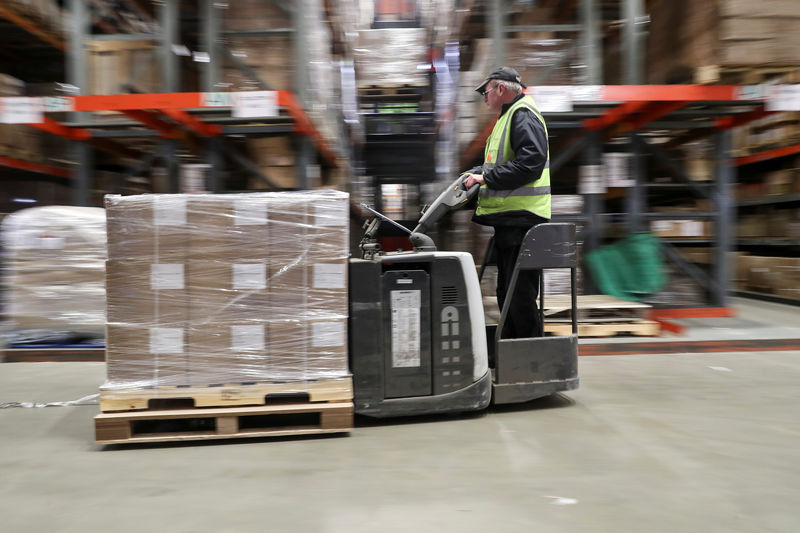By Andy Bruce and William Schomberg
LONDON (Reuters) - British factories lost some of the boost from pre-Brexit stockpiling last month while households slowed their borrowing ahead of the original deadline for the country's departure from the European Union, data showed on Wednesday.
The IHS Markit/CIPS manufacturing Purchasing Managers' Index (PMI) dropped to 53.1 in April from March's 13-month high of 55.1, broadly in line with the average forecast in a Reuters poll of economists.
Exports fell at one of their fastest rates in the past five years, reflecting a slowdown in the global economy.
Uncertainty around the terms of Britain's exit from the EU, originally scheduled for March 29, had previously prompted factories to load up on parts and materials at the fastest rate in the 27-year history of the PMI surveys.
Bank of England data for March, also released on Wednesday, showed caution on the part of consumers whose spending has helped to offset weakness elsewhere in Britain's economy.
Lenders approved the fewest mortgages since December 2017 ahead of the expected Brexit date, and consumer credit growth slowed to its weakest in more than four years.
However, there have been signs that the slowdown in Britain's housing market may have bottomed out. Nationwide Building Society said house price growth picked up to an annual 0.9 percent in April, its highest since November though much slower than growth of about 5 percent at the time of the 2016 Brexit referendum.
With the deadline for Brexit now pushed back to Oct. 31, the pace of factory stockpiling eased in April, though it continued to boost British output amid a broader downturn in European manufacturing.
"The slowdown is less severe than we had expected," economist Samuel Tombs of Pantheon Macroeconomics said.
One in five manufacturers reported that Brexit-related stock-building had continued to boost output in April.
The survey's gauge of export orders fell to its lowest since August 2018, and its second-lowest reading since October 2014. Although global demand for goods has slowed markedly over the last six months, IHS Markit said Brexit uncertainty was the main factor for British factories in April.
"There were also reports of overseas clients acting now to re-route their supply chains away from the UK in advance of Brexit," said Rob Dobson, a director at IHS Markit, the firm which compiles the data.
Last week a quarterly survey of manufacturers by the Confederation of British Industry showed the biggest fall in export orders since the depths of the financial crisis in 2009.
Andrew Wishart of consultancy Capital Economics said he expected Britain's manufacturing PMI to fall further, coming closer into line with a weak euro zone manufacturing PMI.
"The upshot is that a hangover from Brexit preparations in the sector will weigh on GDP in Q2," he said.
Officials at the Bank of England preparing new economic forecasts for publication on Thursday are likely to note cooling producer price pressures shown in the latest PMI, echoing European Commission business surveys published on Monday.

Factories raised selling prices at the slowest pace since July 2016, and their material and energy costs increased at the second-slowest pace May 2016, the PMI showed.